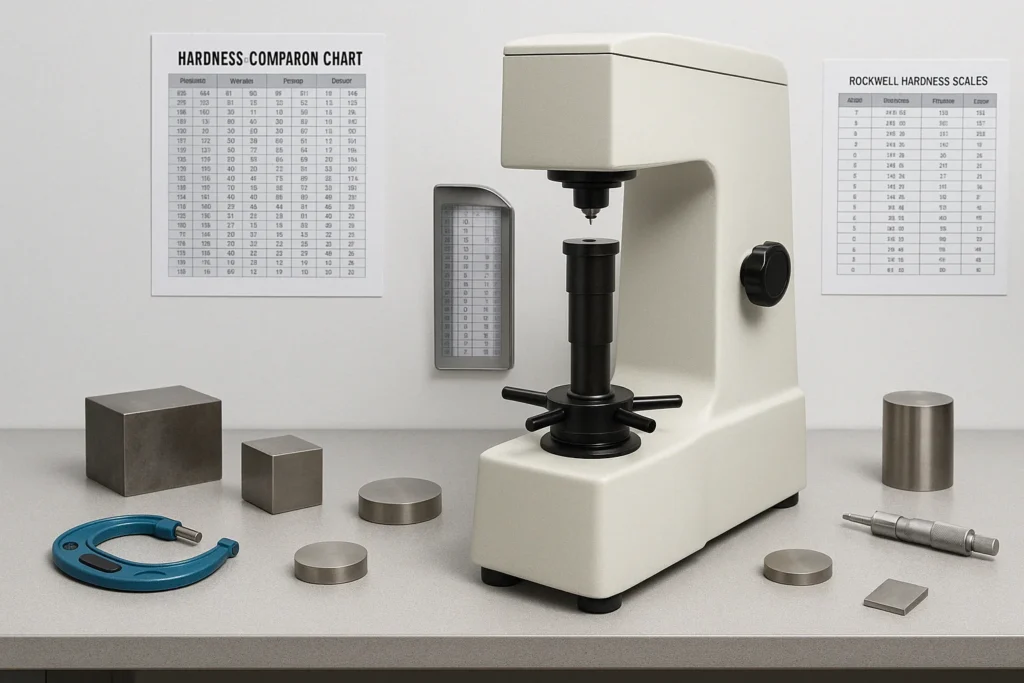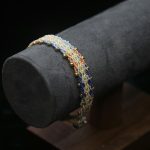If you’re exploring a Rockwell hardness tester for sale, chances are you’re aiming to equip your lab or facility with a reliable quality control tool. This decision impacts more than testing accuracy. It also affects productivity, compliance, and long-term cost efficiency.
Understanding the benefits and real-world applications of these machines can help you make a smarter investment. Let’s break down what matters most when purchasing a Rockwell hardness tester.
Why Rockwell Testing Still Matters
Rockwell hardness testing remains one of the most widely used methods for material hardness evaluation. It’s fast, direct, and doesn’t require elaborate specimen preparation.
For manufacturing, aerospace, automotive, and metal fabrication industries, this method offers dependable results. Rockwell testers provide numeric hardness values that correlate with material strength, wear resistance, and even heat treatment performance.
Unlike some methods, Rockwell testing is ideal for high-throughput environments. You get quick readings with minimal operator training. That’s a huge plus for facilities managing multiple shifts or scaling production.
Key Benefits to Purchasing Your Own Rockwell Hardness Tester
Investing in your own machine gives you immediate control over quality testing. No more waiting on third-party labs or dealing with inconsistent results.
Here’s what your purchasing team should consider as benefits:
- Faster turnaround time for production checks and batch release
- Cost savings over time compared to outsourcing testing services
- Consistent data quality from using the same equipment and settings
- Customization to your specific testing standards (ASTM, ISO, etc.)
Owning a Rockwell hardness tester also gives your team flexibility. You can test parts immediately after machining, welding, or heat treatment without delay.
Common Applications in Industrial Settings
A Rockwell hardness tester is used across several industries where material hardness determines product reliability.
- Automotive: Testing crankshafts, gears, springs, and fasteners
- Aerospace: Verifying hardness in aluminum alloys and structural components
- Metal manufacturing: Quality control on steel, copper, or brass stock
- Tooling: Ensuring cutting tools and dies meet surface hardness specs
For any facility dealing with hardened parts, surface treatments, or structural metals, this tool becomes a standard piece of QC equipment.
Explore related articles to deepen your understanding before you go.
What Makes a Quality Rockwell Tester Stand Out
If you’re actively searching for a Rockwell hardness tester for sale, you’re likely comparing a few different models. So what separates the average from the dependable?
- Load cell technology: This replaces traditional weights for better precision
- Digital display and software: Makes data logging and traceability easier
- Automatic load application: Reduces human error
- Support for multiple Rockwell scales: Enables testing on various materials
You want a tester that integrates well with your current workflow and compliance documentation. Digital testers with USB or network connections are becoming the new norm.
Qualitest: A Trusted Name in Hardness Testing
Among trusted suppliers, Qualitest offers a strong selection of Rockwell hardness testers for sale. Their models cater to both small labs and high-throughput production lines.
Qualitest machines feature user-friendly interfaces, solid mechanical construction, and compliance with major standards. Their lineup includes both analog and digital options, depending on your budget and testing volume.
Whether you’re looking for a manual bench tester or a fully automatic unit, Qualitest has options that scale with your operation.
Budget Considerations and Long-Term Value
Pricing varies depending on features, brand, and automation level. Basic manual Rockwell testers start around a few thousand dollars. Fully digital or automated models can exceed ten thousand.
But total value isn’t just about sticker price. It’s also about durability, ease of calibration, and ongoing support. Machines from trusted brands tend to retain better resale value and require fewer service calls.
Don’t forget to factor in:
- Warranty terms
- Availability of spare parts
- Technical support responsiveness
- Calibration services offered
Final Thoughts
When you search “Rockwell hardness tester for sale,” you’re likely aiming for quality, reliability, and value. Focusing on application fit, trusted brands like Qualitest, and long-term benefits can simplify the decision process.
Think beyond features — think about how the tester will perform in your day-to-day operations. The right machine won’t just measure hardness. It will streamline quality assurance and support your team’s productivity for years to come.
Don’t stop here—take a look at what else we’ve got for you!







